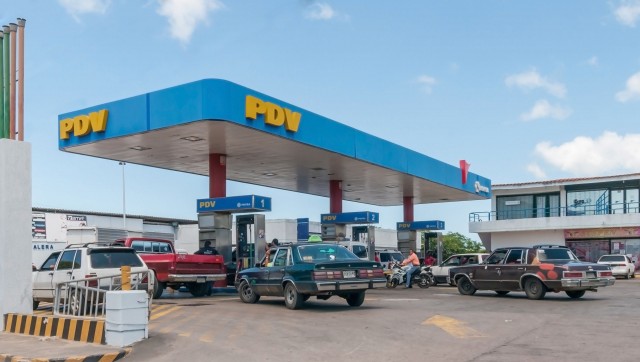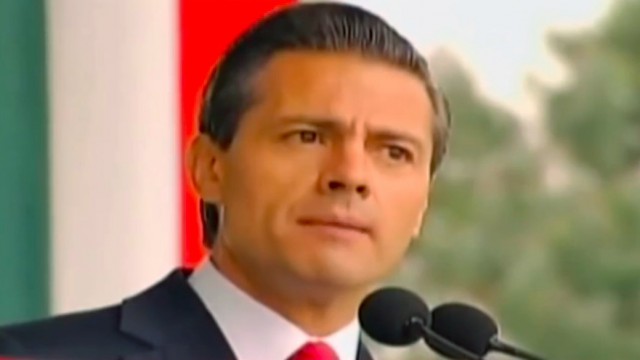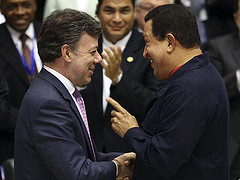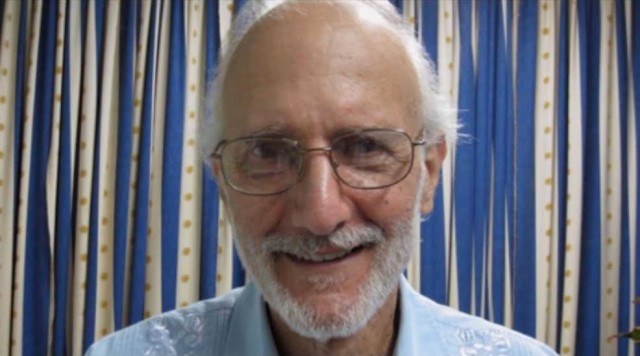
Andes, Argentina, Latin America: Week in Review, Regions, Southern Cone, Venezuela
Falling Oil Prices, a Curse for Venezuela, May Benefit Argentina
December 3, 2014 By Staff
Top Story — The beleaguered economies of Venezuela and Argentina are likely to be affected in sharply contrasting ways by a sustained drop in the price of oil, which reached a five-year low last week. Analysts expect Venezuela’s oil-dependent economy to contract, while Argentina is likely to benefit from lower fuel prices, as it imports most of its fossil fuels.
A Thursday announcement by the Organization of Petroleum Exporting Countries (OPEC) that it would not scale back crude production sent the U.S. benchmark price of oil down to $70 per barrel. Analysts suggest the price could reach as low as $40 a barrel.
Venezuela, the world’s 10th largest oil exporter, is likely to be hit hard by the commodity’s declining price, as some 95 percent of the country’s export earnings come from oil. Experts say questionable economic policy in Venezuela has been offset by consistently high oil revenues, which account for 65 percent of government spending.
The International Monetary Fund expects Venezuela’s economy to shrink by one percent in 2015. These economic woes are likely to prompt further unrest, after the country was swept earlier this year by a wave of protests which left at least 43 dead and hundreds injured.
In an interview with NPR, energy scholar Daniel Yergin explained, “This is not just an economic issue, this is an issue of social stability because it means declines in transfer payments to people, it means declines in people’s income and that’s what becomes a basis of protest and hostility to the governing regime.”
A February article in The Economist said both countries were facing “a come-uppance” due to falling global commodity prices after years of living “high on the hog,” but Argentina is likely to benefit from the plummeting oil prices threatening Venezuela’s stability.
Despite the many similarities between the two economies – high inflation, dwindling foreign reserves and large black markets for currency – Argentina imports a majority of its oil, so analysts say lower prices are likely to benefit the country’s dwindling accounts. The South American country’s former energy secretary told Bloomberg News the country could pay a fifth less for fuel imports in the coming year.
After defaulting on its foreign debt in July, Argentina’s cost of borrowing fell 1.4 percent last month, signaling that investors are increasingly confident in Argentine bonds. In the long term, however, analysts consulted by Bloomberg noted that falling oil prices could also hurt Argentina by discouraging investment in its domestic oil sector. Argentina’s Congress in October passed a controversial bill seeking foreign investment for shale and natural gas production.
Headlines from the Western Hemisphere
North America
- Mexican President Enrique Peña Nieto has submitted a bill to Congress that would replace corrupt municipal police forces with state police within two years and even less time in several troubled states including Guerrero, which has faced particular scrutiny after the presumed massacre of 43 missing teacher trainees.
- Video footage from The Guardian captures the widespread protests and unrest that erupted in Mexico City on the second anniversary of Enrique Peña Nieto’s presidency on Dec. 1.
- Mexican authorities are cracking down on oil thieves , according to the country’s attorney general, in an effort to curb an illegal practice that generates over $1 billion a year.
Caribbean
- Thirty-four men awaiting trial in a crowded Haitian jail north of Port-au-Prince escaped Tuesday by sawing through steel bars — possibly with the assistance of five guards who have since been detained — and thirty escapees still remain at large.
- The number of Americans legally visiting Cuba is climbing, according to an editorial in The New York Times, which notes that many older Americans are visiting on costly “people-to-people” cultural exchange trips that the Cuban government has used to economic advantage.
- A top Dominican prosecutor announced his confidence that the Vatican would properly handle the sexual abuse case against Jozef Wesolowski, a former archbishop and ambassador to the Dominican Republic, and that Dominican authorities have provided enough evidence to prosecute Wesolowski and set an important precedent.
Central America
- Honduras set the Guinness world record for largest human Christmas tree on Dec. 1, when 2,945 people formed an enormous tree with red ornaments at the Democracy Plaza of the Presidential Palace in a ceremony attended by Honduran President Juan Orlando Hernandez who used the festivities as an opportunity to speak about the country’s desire for peace.
- A majority of eligible voters in a municipality of El Salvador voted to ban mining in their district, citing concerns about environmental contamination.
- Panama’s real estate sector has become overdeveloped amid an economic boom, resulting in climbing hotel and office vacancy rates despite increased foreign investment.
Andes
- The rise of illegal artisanal mining in Venezuela has caused a resurgence of malaria as miners drilling holes create pools of stagnant water that are breeding grounds for disease-carrying mosquitos, which in turn infect many of the workers living in over-crowded conditions near the mines.
- Human Rights Watch has called on the Venezuelan government to investigate the cause of 35 inmate deaths that the government has blamed on a mass drug overdose, a claim the Venezuela Observatory of Prisons has questioned.
- Indigenous communities living in the Potato Park conservation site in Peru have warned that global warming is forcing them to abandon agricultural practices they have used for centuries, an announcement that comes as Peru hosts U.N. climate talks in Lima over the next two weeks.
Southern Cone
- The Chilean government announced it will initiate the process to create a new constitution next year to replace the existing 1980 constitution imposed by former dictator Augusto Pinochet.
- Argentina’s boom in shale gas and oil mining has led to conflicts with the Mapuche indigenous community, who say they were not consulted regarding the use of their lands and lament the negative impacts the mining process has had in their communities.
- Three Paraguayan legislators accused of ties to drug traffickers will not be forced to step down until the attorney general’s office acts on evidence gathered by investigators of the legislators’ alleged criminal activities.
Image: Wilfredor, CC0 1.0
Subscribe to Today in Latin America by Email
< Previous Article






2 Comments
[…] the electricity sector since its nationalization in 2007. With global oil prices currently at a five-year low, the administration, which relies on oil exportation for 65 percent of its spending, will see its […]
[…] been reduced by the government — be slashed by another 50 percent, in light of the significant drop in global oil prices since […]
Comments are closed.